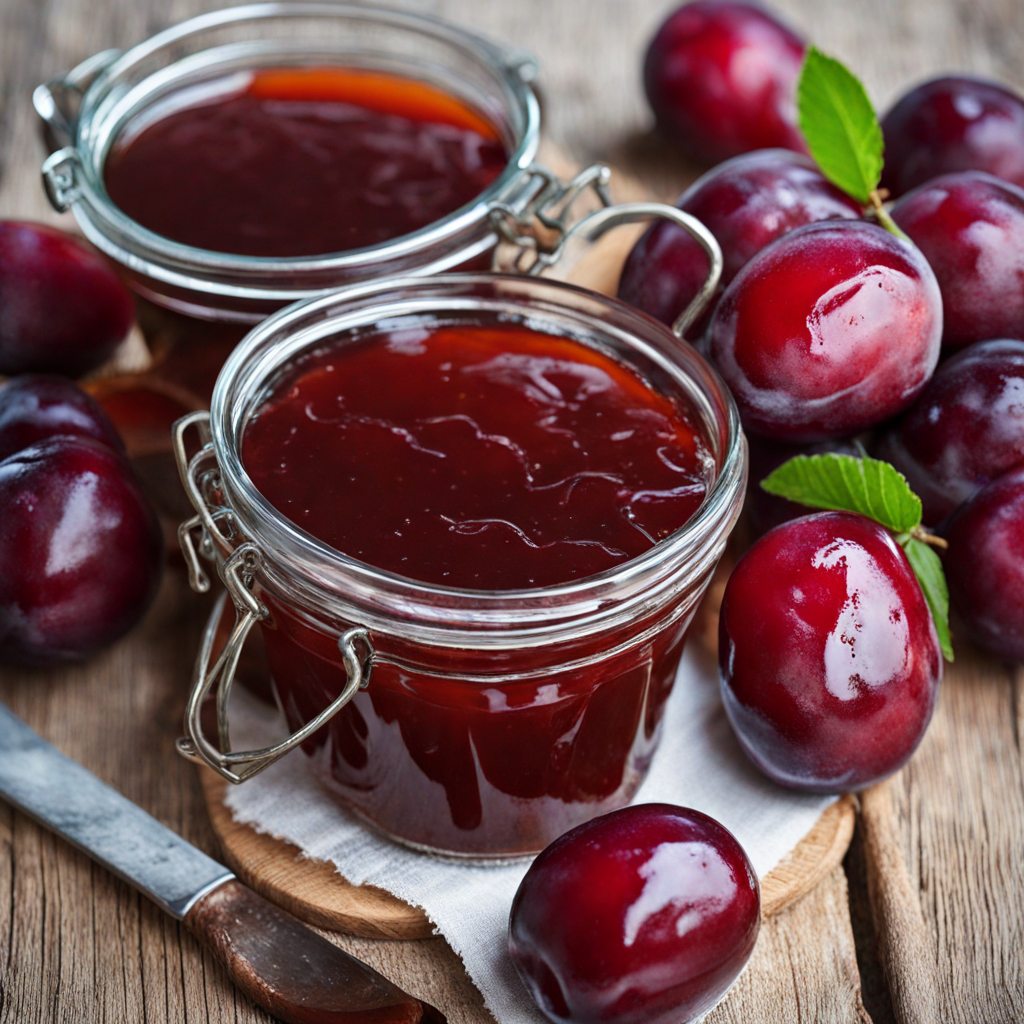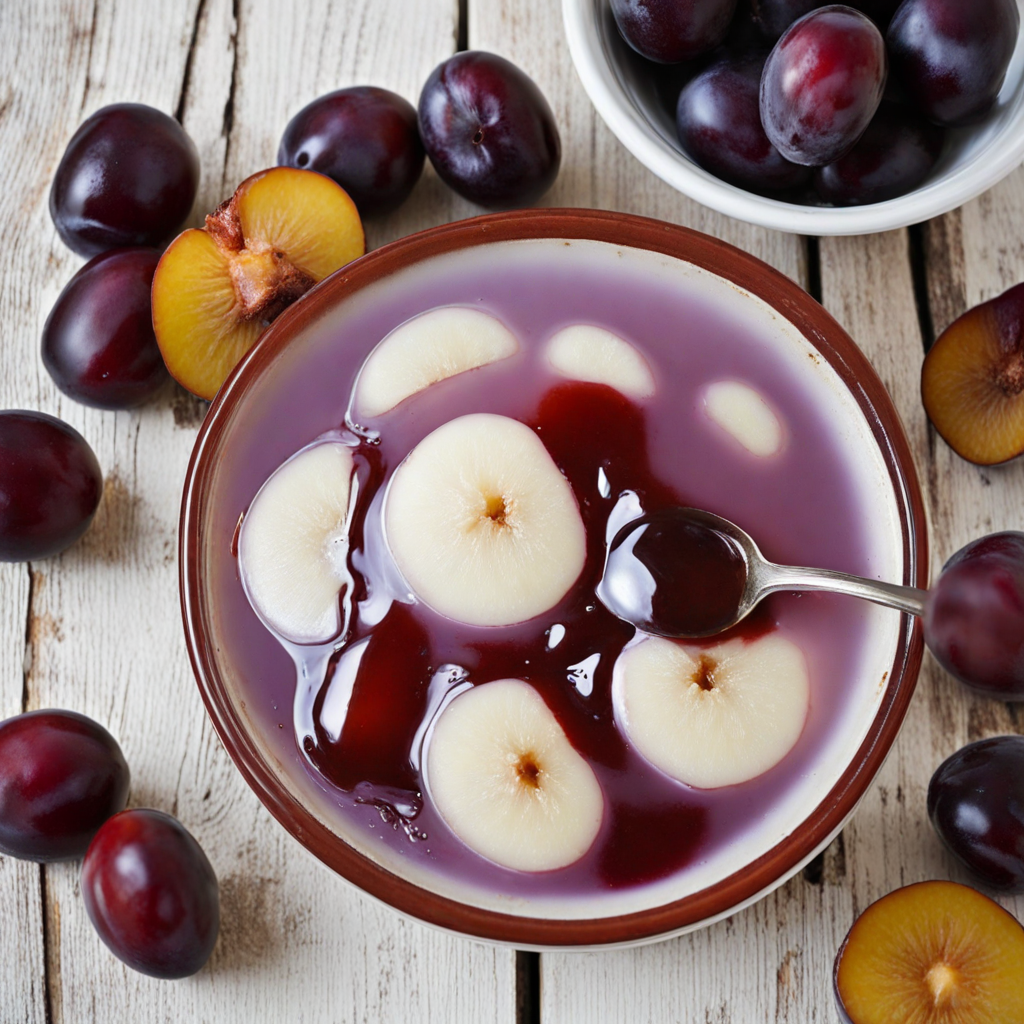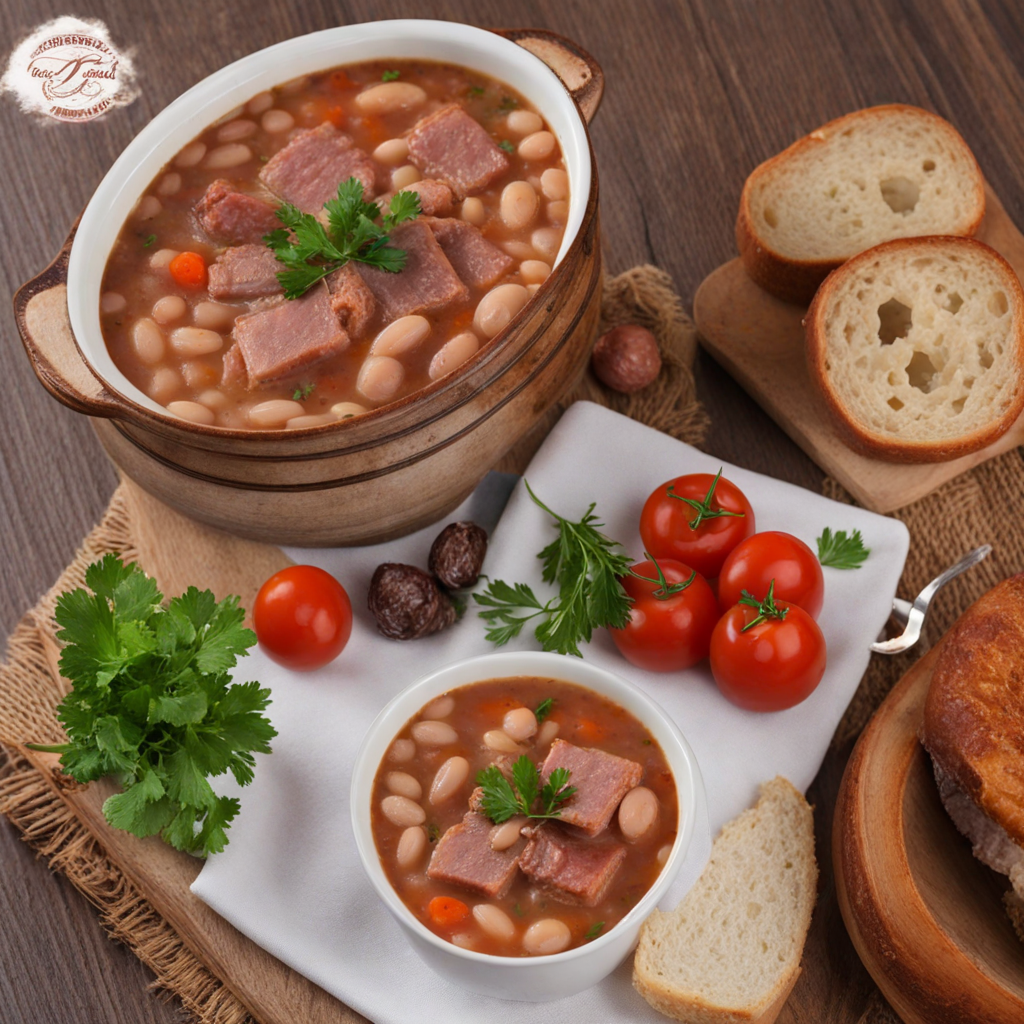Pekmez
Pekmez is a traditional sweet syrup that hails from Bosnia and Herzegovina, crafted primarily from various fruits such as grapes, plums, or figs. The process of making pekmez involves boiling down the fruit juice until it thickens into a rich, dark syrup. This age-old method not only preserves the natural sweetness of the fruit but also concentrates its flavors, resulting in a luscious, aromatic treat that is both indulgent and versatile. The syrup's texture is smooth and slightly sticky, making it perfect for drizzling over a variety of dishes or enjoying straight from the jar. The flavor profile of pekmez is deeply complex, often showcasing a balance of sweetness and tanginess that varies depending on the fruit used. For instance, grape pekmez offers a rich, wine-like quality, while plum pekmez tends to have a more tart and robust flavor. This unique taste is further enhanced by the addition of spices or nuts in some regional variations, creating an even more intriguing culinary experience. Its deep, caramel-like color adds visual appeal, making it a delightful addition to any meal or snack. Pekmez is incredibly versatile in its uses, serving as an ideal topping for pancakes, yogurt, or even ice cream. It can also be spread on bread or used as a sweetener in various desserts and baked goods. Beyond its culinary uses, pekmez holds cultural significance in Bosnia and Herzegovina, often enjoyed during family gatherings and celebrations. As you explore this delightful syrup, you’ll not only discover a new taste but also a connection to the rich heritage and traditions of the region.
How It Became This Dish
The History of Пекмез: A Sweet Cultural Heritage of Bosnia and Herzegovina #### Origins Пекмез, pronounced "pekmez," is a traditional Bosnian syrup made primarily from the juice of grapes, figs, or other fruits, concentrated through boiling until it reaches a thick, syrupy consistency. Its roots can be traced back to ancient times, where its creation was a method of preserving the natural sweetness of fruits, particularly in regions abundant with vineyards and orchards. The word "pekmez" itself is derived from the Turkish word "pekmez," which refers to molasses or syrup, reflecting the historical exchanges and influences that shaped the culinary landscape of the Balkans. Bosnia and Herzegovina, with its favorable climate for grape cultivation, became a prominent area for the production of pekmez. The Ottoman Empire's influence on the region significantly contributed to the development of this sweet delicacy. The practice of making pekmez was an essential part of rural life, especially during the harvest season. Families would gather to press fruit, boiling the juice in large pots over open fires, infusing the air with the sweet aroma of concentrated fruit. #### Cultural Significance Pekmez is more than just a sweetener; it holds deep cultural significance in Bosnia and Herzegovina. Traditionally, it was made in late summer and autumn when fruits were at their peak ripeness. The process of making pekmez became a communal activity, bringing together family and friends, fostering bonds through shared labor and celebration. It symbolizes the abundance of nature and the joy of communal living, reflecting the values of hospitality and sharing that are central to Bosnian culture. In Bosnian households, pekmez has been used in various culinary applications, ranging from being a topping for bread and pancakes to an ingredient in savory dishes. It is often enjoyed with a side of fresh cheese, a combination that exemplifies the balance of sweet and savory tastes prevalent in Balkan cuisine. Additionally, pekmez holds a place in traditional Bosnian medicine, believed to have various health benefits, including aiding digestion and providing energy. Pekmez is also particularly significant during certain religious and cultural celebrations. In Bosnian Muslim culture, it is common to serve pekmez during Ramadan, as it is seen as a nourishing food that provides sustenance after fasting. It embodies the spirit of generosity and hospitality, often shared with guests and neighbors as a gesture of goodwill. #### Development Over Time As the years progressed, the making and consumption of pekmez adapted to changing social and economic landscapes. In the early 20th century, the advent of industrialization and urbanization in Bosnia and Herzegovina began to alter traditional food practices. Families that once relied on homemade pekmez found themselves with less time to engage in this labor-intensive process. As such, commercial production of pekmez emerged, allowing urban populations to access this beloved product without the need for extensive preparation. Despite these changes, many families still hold onto traditional recipes and methods, passing them down through generations. This practice has led to a revival of artisanal pekmez production, where small-scale producers focus on high-quality ingredients and traditional methods. Local farmers' markets and specialty shops in Bosnia and Herzegovina often showcase these artisanal products, appealing to consumers who value authenticity and heritage. In recent years, the global interest in traditional and organic foods has further boosted the popularity of pekmez, both within the country and abroad. It has found its way into international markets, appealing to the diaspora and food enthusiasts eager to explore the diverse flavors of the Balkans. The emphasis on natural ingredients and traditional methods aligns with contemporary dietary trends favoring wholesome, minimally processed foods. #### Modern Interpretations Today, pekmez is experiencing a renaissance, with innovative chefs and home cooks alike experimenting with new flavors and applications. While grape pekmez remains the most popular variety, producers are increasingly experimenting with different fruits, such as pomegranates and elderberries, to create unique blends that reflect the rich biodiversity of the region. In the culinary scene, pekmez has begun to feature in upscale restaurants where chefs incorporate it into gourmet dishes, marrying traditional flavors with modern techniques. It can be found drizzled over roasted meats, used as a glaze for desserts, or incorporated into sauces, showcasing its versatility beyond the traditional bread and cheese pairing. Moreover, pekmez has become a symbol of cultural pride in Bosnia and Herzegovina. Food festivals and culinary events often highlight traditional foods, with pekmez taking center stage as a cherished ingredient. Cooking classes and workshops centered around making pekmez are also gaining popularity, allowing younger generations to reconnect with their culinary heritage. #### Conclusion Pekmez is more than just a sweet syrup; it is a testament to the rich agricultural heritage and cultural practices of Bosnia and Herzegovina. Its journey from ancient preservation technique to a modern culinary delight reflects the resilience and adaptability of Bosnian traditions. As it continues to evolve, pekmez serves as a bridge between the past and present, uniting generations through shared recipes and experiences. Whether enjoyed as a simple spread on bread or as an innovative ingredient in contemporary dishes, pekmez remains a beloved symbol of Bosnian culture, embodying the spirit of community, hospitality, and the enduring connection to the land.
You may like
Discover local flavors from Bosnia And Herzegovina







